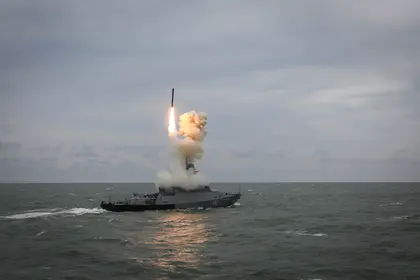A series of daring drone strikes against targets deep inside Russian territory is sparking some delicate and very carefully worded diplomatic posturing on the part of Ukraine’s western allies.
Which strikes are we talking about?
JOIN US ON TELEGRAM
Follow our coverage of the war on the @Kyivpost_official.
On Dec. 6, a drone strike at an airfield in Kursk, Russia set an oil storage tank on fire. It was the third such attack in three days.
Prior to that on Dec. 5, explosions rocked two Russian air bases killing three people and damaging long range bombers, with local social media quick to blame kamikaze drones.
- Obtain the most contemporary war in ukraine update from the Kyiv Post’s news reports today.
- Examine the most contemporary Ukraine news that came out today.
Who carried them out?
Officially, we don’t’ know. Unofficially, almost certainly the Armed Forces of Ukraine (AFU).
Kyiv never publicly acknowledges carrying out attacks inside Russia, but neither does it criticize or condemn them.
Asked about the latest attacks, Defense Minister Oleskiy Reznikov repeated a longstanding joke blaming such fires and blasts on the irresponsible smoking of cigarettes.
“Very often Russians smoke in places where it’s forbidden to smoke,” he said.
How did it carry them out?
This is the big question – Ukraine’s western partners have made a point of not supplying the country with long-range weapons that could attack targets deep inside Russia for fear of antagonizing the Kremlin.
This is why the U.S. is so keen to stress that the latest strikes were nothing to do with them, while at the same time, making clear it thinks Ukraine should be able to develop its own methods of striking inside Russia.

Restored in Hours: Metro Station Survived Four Massive Missile Strikes
“We have neither encouraged nor enabled the Ukrainians to strike inside of Russia,” Secretary of State Antony Blinken told reporters on Dec. 6.
“But the important thing is to understand what Ukrainians are living through every day with the ongoing Russian aggression,” he said, accusing Russia of “weaponizing winter” through attacks on civilian infrastructure.
Blinken vowed “our determination to make sure that they have in their hands – along with many other partners around the world – the equipment that they need to defend themselves, to defend their territory, to defend their freedom.”
Experts believe Ukraine penetrated Russian airspace with simple Soviet-era drones.
Speaking next to Blinken after talks with their Australian counterparts, U.S. Defense Secretary Lloyd Austin said Washington was not stopping Ukraine from developing long-range missiles on its own.
“The short answer is no. We’re absolutely not doing that,” Austin said. “We are not working to prevent Ukraine from developing their own capability,” he said.
The U.S. declined to comment on a Wall Street Journal report that it had altered HIMARS sent to Ukraine – a rocket system seen as a game-changer on the battlefield – to prevent firing into Russia.
Why would Ukraine carry out these strikes?
Ukraine appears to be targeting Russia’s ability to carry out long-range missile attacks.
One of the strikes on Dec. 5 struck the key Engels airfield in the Saratov region, where Russia keeps some of its strategic nuclear bombers.
Ukraine says aircraft based at Engels are used to launch missiles at it from outside its territory.
For weeks, Moscow has rained missiles down onto Ukraine’s electricity and water supply infrastructure, ratcheting up pressure on the country’s civilian population as winter looms and power cuts leave vulnerable people exposed to the cold.
How has Russia reacted?
Russia is in a bit of a tricky situation – officials will be absolutely fuming that attacks are being carried out on its territory but will not want to make too much of a deal about it publicly as it tries convince the Russian public that everything is totally fine.
The Kremlin said that Russian President Vladimir Putin met senior officials on Dec. 6 to discuss “domestic security” and said that Russia was taking “necessary” measures to fend off more Ukrainian attacks.
Despite being the ones who launched the unprovoked invasion, Russian officials have repeatedly warned Ukraine’s western allies that they risk escalating the war by supplying weapons.
Earlier this month Russia’s Foreign Minister Sergei Lavrov, said: “You shouldn’t say that the U.S. and NATO aren’t taking part in this war, you are directly participating in it.”
What happens next?
Expect more strikes from Ukraine and more indignant bluster from Russia.
You can also highlight the text and press Ctrl + Enter










